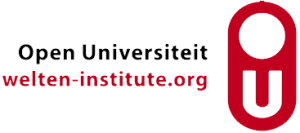
In order to Exchange views and experiences and to facilitate and support each other in our learning analytics endeavours, we are inviting you to participate in our one-day-learning-analytics-event in Delft on April 8, 2019!
Among various trending topics that can be investigated in the field of educational technology at present there is a clear and high demand of making use of educational data to improve the whole learning and teaching cycle. This spans from collecting and estimating the prior knowledge of students for a certain subject, to the actual learning process and its assessment. Educational data science therefore cuts through almost all educational technology disciplines and is key to many other research topics.
Data science in education has been coined ‘Learning Analytics’, an umbrella term for research questions from overlapping research domains such as psychology, educational science, computer and data science. Learning analytics is the collection and analysis of data about learners and their contexts, in order to understand and optimize learning experiences and the environments in which they occur.
The main objective for learning analytics is to unveil so far hidden information out of the educational data to gain new insights and prepare those for the different educational stakeholders (learners, trainers and managers). This new kind of information can support individual learning, enhance facilitation and teaching quality, but also improve organizational knowledge management processes and system administration.
Programme:
12.00 Walk-in lunch and registration
13.00 Opening by prof. Marcus Specht
13.15 Keynote by prof. Hendrik Drachsler
14.00 Parallel workshops
Learning Analytics Dashboards
Ioana Jivet & Tom Broos
Feedback is the most impactful teaching strategy. However, offering personalized feedback to large cohorts of students is a great challenge. Could visual learning analytics offer a solution? Learning analytics repurposes data from online learning environments and other sources to improve learning. This data can be visualized and delivered to various stakeholders to support them in making informed decisions. Teachers can use this visual feedback for learning facilitation and class management. For learners, it can increase awareness and reflection and support them to achieve their goals. Join this workshop to get an insight into how to build effective visual feedback displays for different stakeholder groups. We will discuss the importance of ensuring that visual feedback is scalable (can be delivered to large cohorts), actionable (guides users to taking action), and grounded (is based on research).
Multimodal Learning Analytics
Daniele Di Mitri & Marcus Specht
Human anatomy and cognitive abilities have developed through physical interactions with objects and with other living creatures. Experiences that involve multiple senses, such as touch, smell, visuals, sounds or flavours are inevitably more meaningful and authentic for the learner. The idea of ‘multimodality’ consists of segmenting and analysing the interaction of learners with the physical world. Today it is possible to capture fine-grained traces of the learning process with wearable sensors, Internet of Things devices and high-frequency data collection technologies. We call these traces ‘multimodal data’. Through signal processing, machine learning and experience sampling it is possible to use multimodal data to tailor personalised multisensorial feedback. Such feedback could steer the learner to optimise learning goals attainment or skills acquisition. In this workshop, we will talk about the potentials of multimodality and Multimodal Learning Analytics (MMLA) and how these can be used to improve learning. We will investigate the potentials of sensors data, machine learning and artificial intelligence in relation with multimodal data. We will also present some existing prototypes for MMLA, discuss future implementations and possible research collaboration opportunities on the topic.
Trusted Learning Analytics Infrastructures
Stefaan Ternier & Maren Scheffel
With learning analytics we want to develop an insight on data generated throughout a learning process. This relies often on big data captured in infrastructures that facilitate the feedback of data (or an analysis of the data) to stakeholders in the learning process: teachers, curriculum developers, content creators, … but most importantly learners. Along with technical research questions such as scalability of the infrastructure, compatibility with standards and specifications, this workshop will focus on problems that are of importance to influence the acceptance of these infrastructure. For instance what are the implications of trusted infrastructures for acceptance and usability of the infrastructure. This workshop will start from lessons learned in various learning analytics projects where the organisers will share their vision on scalability and trust. Participants will next actively explore these issues and brainstorm about solutions
Design Thinking for Learning Analytics
Christian Glahn
Learning analytics triggers emotional discussions and raises concerns about variability of educational practices, teaching ethics and privacy of learners and teachers. In these discussions learning analytics is often reduced to click counting and it therefore appears as an antithesis of complex and self-regulated learning, creativity, as well as personal support. A blind spot in such discussions is the tight coupling of learning analytics to the educational design of the learning experiences. This workshop focuses on this blind spot and addresses how educational-design-choices influence what data becomes available for learning analytics and how this data is represented in learning management systems. The participants will explore and discuss the role of data in different learning designs for assessment and support.
15.30 Coffee break and plenary feedback workshops
16.00 Panel discussion: The Future of Learning Analytics
Moderation by Marcus Specht
Panel: Erna Kotkamp (Proj. Manager ICT, TU Delft), Claudia Hauff (Associate Prof., EEMCS TU Delft), Tinne de Laet (Associate Prof., Engineering Science KU Leuven), Heather Hamilton (Brightspace)
17.00 Drinks and bites
It's no longer possible to register, we've reached the maximum amount of participants.
In association with:

